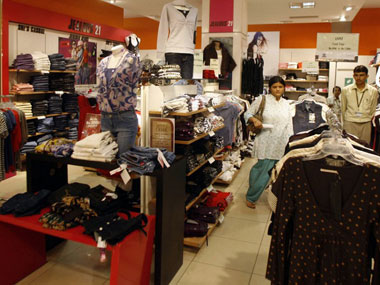There is something special about the festive season. The mouth-watering aroma of sweets mingled with the aroma of incense, the cacophonic noise of drums and crackers which somehow sounds like music to the ears, the glittering decorations, the ~made in China~ disco lights, loud colours and what not. And along with all these, the festive season also brings in loads of discounts and offers.
It seems like the whole world is on a discount, right from that five lakh rupee car to that 180 rupee hair colour. Which means, every item in the market, every advertisement on television, on radio and newspaper is competing for every rupee in your pocket. The pop-up retail store ~entices~ offers you special prices even via your gmail, and facebook accounts. Neither can you run, nor can you hide. But the truth is neither do you want to run nor do you want to hide from such offers. Festive season changes something in our minds that makes you spend, at times even over spend.
Parag Parikh, author of Value Investing and Behavioral Finance, told Firstpost, “Imagine your boyfriend gives you a rose, which cost’s Rs 5. Now imagine, he simply gives you a Rs 5 note instead. The emotions you felt while getting the rose will be very different than getting the note.” But, if you see the value of the rose and the five rupee note is the same, yet our mind processes both the items differently. Parikh says, “This is due to emotions. And, the same emotions come into play during festive seasons. Festive season buys are emotional buys, they are intuitive purchases.”
In fact advertisers have built a whole industry around our emotions. They use psycho-graphics, a study of our values, emotions, and lifestyle and the like to recognize the psychological triggers that ~tempts~ motivates us to spend. Just take a look at the Diwali special advertisements that run on TV. Cola does not taste any different in Diwali, but the advertisement makes it taste better, sweeter during festivals, without which festive season would be incomplete. Or take the Cadbury ~not traditional Indian sweet~ chocolate advertisement which says, “whom will you make happy this Diwali” ~Like you couldn’t make anyone happy with a ladoo or pedha.~ The consumer durables, right from flat screen LCDs to digital cameras, from paper thin laptops to nth generation Mobiles, amalgamate the festive season mood in their advertisements and touch us on an emotional level and we buy, buy and buy.
[caption id=“attachment_501049” align=“alignleft” width=“380”]  With the festive season having just kicked off, know how and why you shop, there nothing wrong in enjoying the money you earned. Reuters[/caption]
So while on one had, we are full of emotions, and the festive mood, on the other hand we also have marketers using their minds to ~trick~ influence our minds to shop and shop more. Then those, (the lucky PSU, government employees and like) who get Diwali bonus, during this festival of light, become ~vulnerable to spend~ as little children in a toy shop. And, as behavioral economist, Richard Thaler, has said in his various books and research papers, we treat bonus money differently than our earned money.
Technically this is called mental accounting, but simply put, amongst other things; we treat the same amount of money differently depending on the source. Mental accounting makes us make~irrational~ spending decisions wherein we treat bonus money (say Rs40,000) as “found money” and we are more willing to spend it on things ~we may not need~, than the same amount (Rs40,000) in our savings account. Our minds tell us bonus money is to be enjoyed. And for those who don’t get bonuses, there is always an ~devil~ angel which comes in 3X2 inches size aka credit card, which comes to their rescue. Behavioral Finance has proven time and again, that our minds treat plastic money differently than cash coming straight out our wallets. With festivity in the air and heart, it’s just becomes less painful pay via the card than to part with hard earned cash.
The festive mood, luring advertisements, bonuses and credit cards work like charms that pull you to shop, and adding to that are discounts, free gifts, buy one get one free deals. After all, no one wants to pay the full price when they can get the same item for less. And the last thing anyone wants to do during Festive season is discount math.
While there is a good possibility that the deals are really discounted and price you pay during festive season is much lesser than what you would have paid before and after the festive season, there are a few things you should know.
While the same item before a discount was a luxury, a small discount makes our mind think it’s affordable ~with a credit card~. If you put all your festive shopping on the card so that you won’t miss the discounted deals, remember that you pay around 40% rate of interest per annum on the card, and that Rs 5000 DVD might just cost double if you keep rolling that credit card. Then we have social pressures to belong to a certain ~ipad, iphone only~ club, after all success today is defined by what we own, what we drive, what we wear, and the flatness of our TV and thinness of our laptops, and the festive season is the best time to show all that we are to our friends and family. And as someone once said, we buy things we don’t need to impress people we don’t like with the money ~(credit cards)~ we don’t have.
With the festive season having just kicked off, know how and why you shop, there nothing wrong in enjoying the money you earned. But knowing how your mind works around festive seasons could help you just shop well and shop wiser.
Seasons Greetings!


)
)
)
)
)
)
)
)
)



